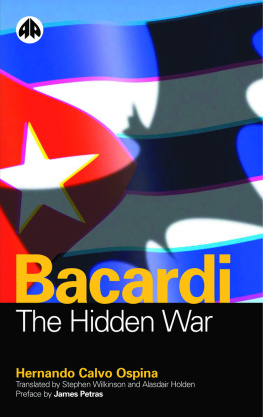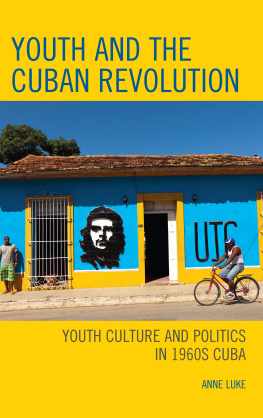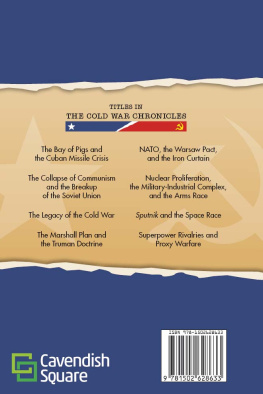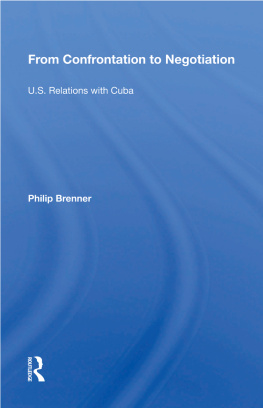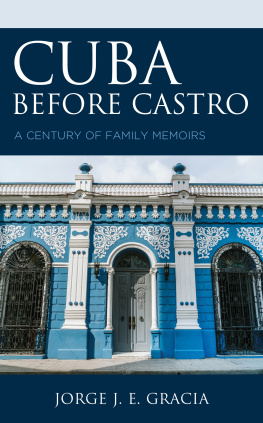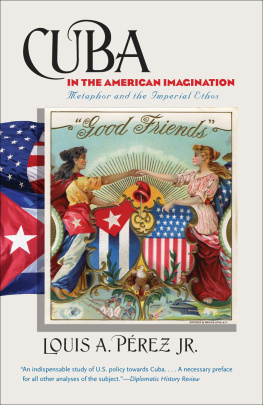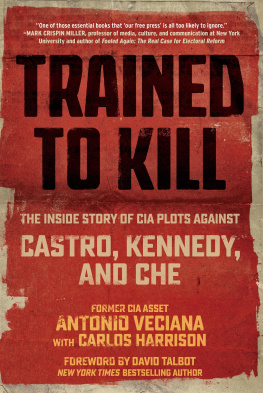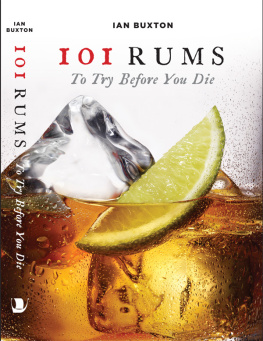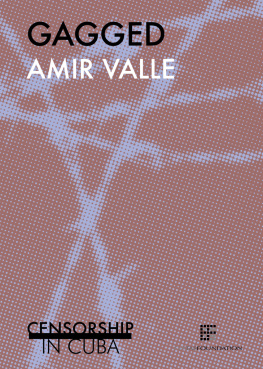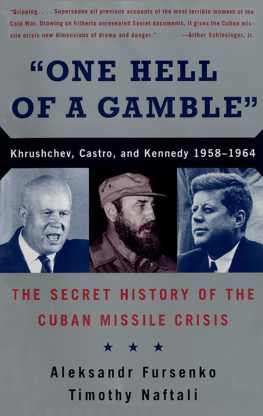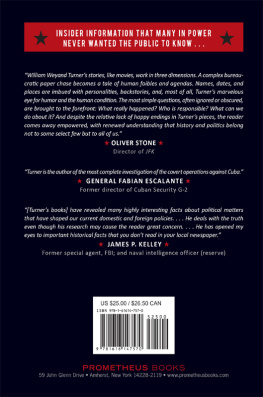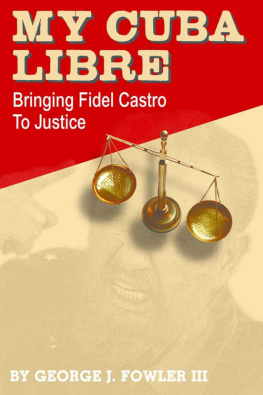BacardHernando Calvo Ospina is a Colombian journalist, resident in Europe. He defines himself as being politically committed and this is reflected in his work. He has written various books, all of which have been translated into numerous languages. Among them are: Per: los senderos possibles (Peru: The Possible Paths, 1994), The Cuban Exile Movement: an expos of the Cuban American National Foundation and anti-Castro groups (Ocean Press, 1999) and Salsa! Havana Heat, Bronx Beat (LAB, 1995).
Bacard
The Hidden War
Hernando Calvo Ospina
Translated by Stephen Wilkinson and Alasdair Holden
Preface by James Petras
First published in French 2000 by EPO.
First English language edition published 2002 by Pluto Press
345 Archway Road, London N6 5AA
and 22883 Quicksilver Drive, Sterling, VA 20166-2012, USA
www.plutobooks.com
Copyright Hernando Calvo Ospina and EPO, 2000; this translation Stephen Wilkinson and Alasdair Holden 2002
Authors email address:
The right of Hernando Calvo Ospina to be identified as the author of this work has been asserted by him in accordance with the Copyright, Designs and Patents Act 1988.
British Library Cataloguing in Publication Data
A catalogue record for this book is available from the British Library
Library of Congress Cataloging-in-Publication Data
Calvo Ospina, Hernando, 1961
[Ron Bacard. English]
Bacard: the hidden war/Hernando Calvo Ospina; translated by
Stephen Wilkinson and Alasdair Holden; preface by James Petras. 1st
English language ed.
p. cm.
Translation of: Ron Bacard.
ISBN 0-7453-1874-6 (hardback) ISBN 0-7453-1873-8 (paperback)
1. Bacardi Corporation (Puerto Rico)History. 2. Bacard
Corporation (Puerto Rico)Political activity. 3. Rum industryUnited States. 4. Rum industryUnited StatesPolitical activity. I. Title.
HD9394.U54 B33313 2002
338.766359097295-dc21
2001006330
ISBN 0 7453 1873 8 hardback
ISBN 0 7453 1874 6 paperback
ISBN 978 1 7837 1895 5 ePub
ISBN 978 1 7837 1896 2 Kindle
10 9 8 7 6 5 4 3 2 1
Designed and produced for Pluto Press by
Chase Publishing Services, Sidmouth, EX10 9QG
Typeset by Replika Press Pvt Ltd, India
Printed in the European Union by Antony Rowe, Chippenham, England
To:
Nabor Calvo, Elvia Ospina, Paula Andrea Calvo, Yohan Calvo, Karine lvarez, Manolo and Alina, Miguelito, Annemie Verbruggen, Katlijn Declercq, Pedro and Odile, Miriam Rodrguez, Paquito, Luis Berois, Paco and Federica, Annette Lacoste, Alfonso and Rita, Enrique Gonzlez, Teddy Gorman, Jaime and Leticia, Juan and Niurys, Florance Rigaud, Jess and Miselda, Wanda Lawn. With special thanks to the Cuba Solidarity Campaign UK.
Without their support and kindness this work would not have been possible but that does not imply any legal responsibility on their part for its content.
All my operations are strictly carried out according to the American rules, and they always will be. This American system, which is our system, call it Americanism, call it capitalism, call it what you like, gives everyone and each one of us immense opportunities if we know how to grab them with both hands and squeeze them as much as possible.
Al Capone
Italian-American Gangster
Prologue
by James Petras
Professor of Political Ethics at the University of Binghamton, New York
This is the story of the close-knit relationship between major stockholders and directors of Bacard rum, the extreme right-wing Cuban American National Foundation and the CIA. It provides a wealth of details documenting how Bacard acted as a conduit for CIA funding to paramilitary mercenaries in Nicaragua, Angola and of course Cuba. But this is more than a litany of horror stories about a nasty multinational corporation acting with impunity against desperate people struggling to improve their lives.
This book raises fundamental issues about the relationship between multinational corporations and imperialist politics, about the instrumental use by the state of private corporations to serve state-directed terrorism. Fundamentally, this study argues that multinational corporations are not simply economic units pursuing market maximising goals but political units that are used by the state to pursue clandestine activities.
By focusing on the role of Bacard in the formation of the Cuban American National Foundation (CANF) and its direct participation in influencing US policy towards Cuba, it raises the issue of how foreign corporate executives with an ideological axe to grind can make policy behind the backs of US citizens and against their interests. Because the fact of the matter is that Bacard is not a US corporation though it controls US legislators and contributed to the financing of President Clintons election campaign.
The Cuban American National Foundation and Bacard are tightly interlinked as key representatives of Bacard are on the board of directors of CANF. The policies of Bacard/CANF have been a major impediment to any rapprochement between the US and Cuba. The fact that the President of the US Chamber of Commerce the major business association in the US has declared it a top priority to re-establish economic ties with Cuba tells us that Bacard-CANF are increasingly isolated from major business interests in the US. Why then does Washington persist in following the extremist policies of Bacard-CANF?
Calvo Ospina provides us with some promising leads to uncovering why a numerically insignificant migr group, concentrated in one city of one state (Miami, Florida) can wield so much influence. Wealthy right-wing extremists provide up to 15 per cent of congressional campaign funds. More importantly, Cuban migrs have played a major role in dirty clandestine operations in areas designated by Washington as being of strategic importance. Washington is loath to disown those who directed and funded the Nicaragua Contras, the UNITA mercenaries in Angola, the death squads in El Salvador or advised the fearsome political police in Chile. The Cuban migrs are or have been a strategic asset.
Thus while an increasing number of major conservative US corporations and farm groups are clamouring for Washington to lift trade barriers with Cuba, the Clinton-Gore-Bush administrations resisted so as to avoid alienating their terrorist prodigy among the right-wing Cuban migrs.
Calvo Ospina highlights the ideological terrorist component of US policy and the key role that Cuban migrs and Bacard played in implementing this policy. It remains to be seen, in this new post-Cold War era when the battle for the marketplace has intensified, whether Washington will opt for Bacard or for the US Chamber of Commerce.
By Way of Introduction
(A)
Although they may not be facts well known to most people on the planet, it is not difficult to find information about unethical practices carried out by powerful transnational companies practices that go against the interests of humanity, particularly in countries of the so-called Third World. Among the many such transnationals one could mention Shell, BP, Texaco, Total or Nestl. However, when it comes to Bacard, the worlds largest rum producer, it seems that nobody has anything to say. Nobody dares to question this multinational which sells 240 million bottles (20 million boxes) annually of a spirit that is regularly consumed at parties in more than 170 countries.

